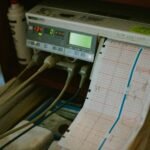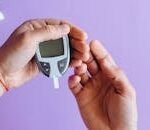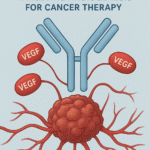-
Haematinics
Haematinics Haematinics are essential nutrients required by the bone marrow for blood cell formation (haematopoiesis). These nutrients play a crucial role in maintaining healthy red blood cells. Haematinics are used in treatment of various types of anaemia. The main haematinics include iron, folic acid, and vitamin B12. Additionally, substances like copper and pyridoxine are required
-
Expectorants
Expectorants Expectorants are medications or natural ingredients that help clear mucus from a person’s airways. They can be used for coughs that produce mucus, such as the common cold or flu. Expectorants aim to make coughing up mucus easier. They do not actually stop coughing. A productive cough should not be suppressed because it helps
-
Emetics
Emetics Emetics are agents that induce nausea and vomiting. They are used primarily for the emergency treatment of poisoning caused by certain toxins that have been ingested. Emetics work by stimulating the body’s natural response to expel harmful substances through vomiting. The use of emetics is limited to the treatment of poisoning with certain toxins that have
-
Astringents
Astringents Astringents are chemical compounds that tend to shrink or constrict body tissues and form a protective layer on the surface. Due to their protein action, astringents reduce cell permeability, leading to decreased local edema, exudation, and inflammation. The word “astringent” derives from Latin adstringere, meaning “to bind fast.” These substances are usually applied topically
-
Antimicrobial Agents
Introduction Antimicrobial is an agent which kills microorganisms (microbicide) or stops their growth (bacteriostatic agent). Use of antimicrobials is a common practice for at least 2000 years. Ancient Egyptians and ancient Greeks used specific molds and plant extracts to treat infection. Antimicrobial is a broad terminology describing activity against microbes. There are various specific terminologies
-
Radiopharmaceuticals
Radiopharmaceuticals Radiopharmaceuticals are a group of pharmaceutical drugs containing radioactive isotopes. These compounds serve both diagnostic and therapeutic purposes. Radiopharmaceuticals emit radiation themselves. Radiopharmacology is the specialized branch of pharmacology that deals with these agents. The primary group of radiopharmaceuticals includes radiotracers, which are used to diagnose tissue dysfunction. Radiopharmaceuticals are administered to patients via
-
Dental Products
Introduction Dental products typically include a variety of oral care items designed to promote dental hygiene and solves common oral health issues. Dental hygiene is also important. Clean teeth helps good health and a clean teeth cannot decay but practically it is impossible to keep ones teeth continuously clean all the years. Various factors contribute
-
Cathartics
Cathartics Cathartics are substances which promote bowl movement and help relieve constipation. They work by increasing the movement of the intestines or by softening the stool, making it easier to pass. They often used for short term relief of constipation or to prepare for certain medical procedures. In normal habits, peristalsis lead to defecation. Peristaltic
-
Electrolytes Used in Replacement Therapy and ORS
Introduction Electrolyte replacement therapy is a fundamental aspect of medical treatment, aiming to correct imbalances in essential ions within the body. It involves replenishing specific electrolytes to restore health and maintain homeostasis. Under the normal physiological conditions body mechanisms adjusts the electrolyte balance and no replacement is necessary. However, due to certain conditions (like pathological
-
Major Extracellular and Intracellular Electrolytes
Introduction Electrolytes plays an important role in maintaining physiological balance, regulating fluid balance, nerve signalling and muscle contraction in the human body. Understanding the intracellular and extracellular fluid is fundamental for maintaining overall health and preventing electrolyte imbalances which can lead to serious medical complications. In this article we will see major intracellular and extracellular
Search
Recent Posts
- 2D Echo Test (Echocardiography): Uses, Procedure, Normal Values, Cost, and Clinical Importance
- The Ultimate Guide to Glucometers: Types & Uses Explained
- Mounjaro Injection (Tirzepatide): Uses, Dosage, Benefits, Side Effects & more
- Benefits of Walking for Heart and Diabetic Patients
- Bevacizumab Explained: Structure, Mechanism of Action, Clinical Uses, and Side Effects
Categories
- Biochemistry
- Biostatistics
- Biotechnology
- Blogs
- Chemistry
- Community Pharmacy
- Diagnostic tests
- Disease & Conditions
- Drug Index
- Featured Blog
- Hospital Pharmacy
- Human Anatomy And Physiology
- Inorganic Chemistry
- Lifestyle & Wellness
- Medicinal Chemistry
- Microbiology
- Miscellaneous
- Novel Drug delivery Systems
- Organic Chemistry
- Pathophysiology
- Pharma Instruments & Devices
- Pharma News & Updates
- Pharma Updates
- Pharmaceutical Analysis
- Pharmaceutical Jurisprudence
- Pharmaceutics
- Pharmacognosy
- Pharmacology
- Pharmacy
- practice mcq
- Previous Question Papers
- Social Pharmacy
- Study Material
Archive
- December 2025 (3)
- November 2025 (1)
- October 2025 (1)
- September 2025 (7)
- August 2025 (7)
- July 2025 (6)
- June 2025 (9)
- May 2025 (9)
- April 2025 (10)
- March 2025 (13)
- February 2025 (13)
- January 2025 (20)
- December 2024 (48)
- November 2024 (49)
- October 2024 (64)
- September 2024 (62)
- August 2024 (58)
- July 2024 (56)
- June 2024 (25)
- May 2024 (17)
- April 2024 (19)
- March 2024 (21)
- February 2024 (18)
- January 2024 (24)
- December 2023 (13)
Tags
biochemistry bpharmacy third semester Construction free practice mcq inorganic chemistry microbiology microbiology mcq pathophysiology Pharmaceutical Engineering pharmaceutics Pharmacology pharmacy practice mcq physical pharmaceutics physical pharmaceutics 2 practice MCQ for govt pharmacist exam





